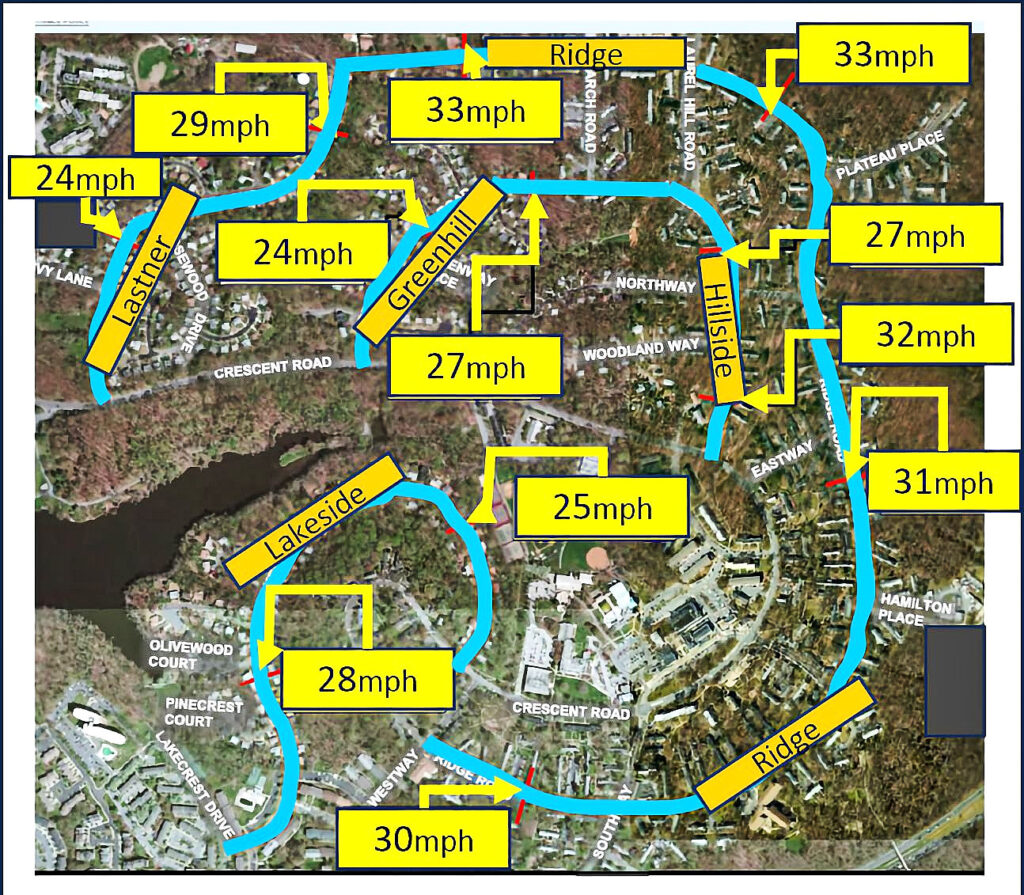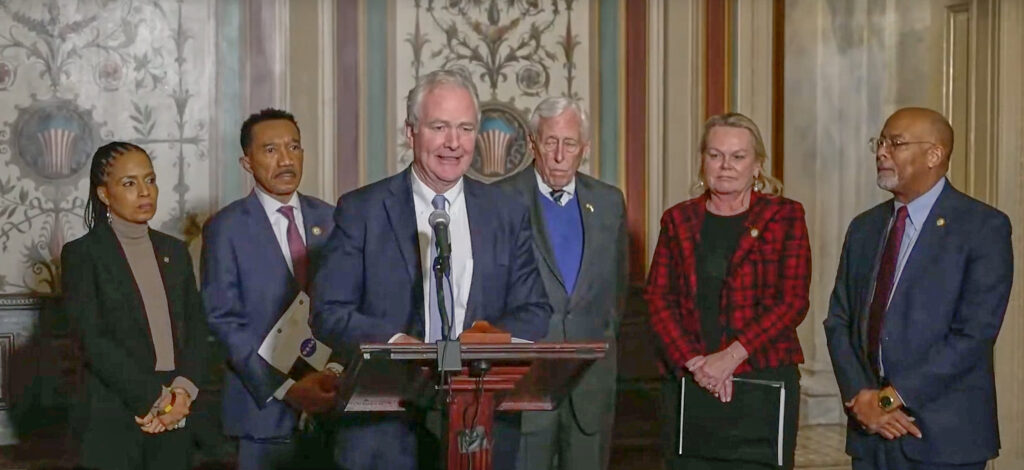The Greenbelt City Council meeting of May 10 was more to the point, more polite, less divisive and far shorter than has recently been the case, presumably as a result of discussions the week before on demeanor and process. Though still frosty, the interactions in council remained professional and relatively unmarred by discord on an agenda that held many opportunities for contention.
The meeting (partially addressed in the May 13 News Review) included a number of items submitted for first reading by Mayor Colin Byrd. The first would have council hold a monthly public hearing on crime statistics. Byrd moved for a second reading and adoption, noting that he anticipated many amendments and describing the purpose as being to set aside time, monthly, for a “quick overview of the crimes seen in the previous month.” Councilmember Silke Pope wondered why a resolution was needed and whether doing this would cause more work for staff. Byrd thought it would not.
Against a chorus of frenzied barking from the dog pound, Police Chief Richard Bowers explained that the previous month’s crime reports aren’t available until two weeks after that month’s end, meaning that some data would be 45 days old when discussed. He also noted that the process of formulating the data is labor intensive. Councilmember Judith Davis suggested that reviewing trends might be more informative and pointed out there was also a risk that such a session could become a forum for the airing of individual grievances. She warned that council should consider how much meeting time it would take and tailor its agenda accordingly, shortening it to allow the time. Councilmember Edward Putens thought that increased statistical information on crimes would be more helpful, but felt that localized meetings in different parts of the community would be more productive. He said he would rather see the police department focus on staffing/training given its current staff shortages. Councilmember Leta Mach was in favor of a pilot project and Councilmember Emmett Jordan said he would prefer to incorporate such a review in the quarterly update from the city manager – following the pattern already in place. The item was postponed until May 24.
Crime Reduction
This ordinance was also presented by Byrd, who moved for a second reading and adoption, seconded by Councilmember Rodney Roberts. During the discussion, Davis reported that she had requested an estimate of the staff hours required to create the public safety plan but did not receive it. Jordan thought that the plan was already part of the annual budget. Putens agreed with Jordan and objected strongly to putting more requirements on the police when they aren’t fully staffed, suggesting we “get out from under Covid first.” Byrd responded that he didn’t see asking for this plan as “pounding” on the department or “dumping” on them, but agreed it would result in additional work. He felt what the city is currently doing around crime is not enough. He wanted to imagine public safety as involving multiple city organizations in addition to the police, e.g., CARES and recreation as well as the public. He wanted to know “what the city can start doing differently and better” – not just a cut-and-paste on the next year’s budget. He said, “We cannot just be the same old same old.”
Davis moved to table the motion until there is an estimate by the city manager of how much effort is involved in fulfilling the request. Roberts was opposed to delay, noting that it was the city and council’s job to work on the issue. He said, “We’ve supposedly been doing community policing for the last 30 years at least and we are not looking at updating our methods.” Roberts thought council should “step up and think a little bit harder” and objected to cutting off discussion.
Byrd wanted to put a timeframe on Davis’ request for information so it wouldn’t be held up indefinitely. Davis said she is not trying to kill the motion but to get the information she had previously requested and suggested tabling for a month. Robert Snyder, speaking as a resident, commented that the proposal invited an extra layer of bureaucracy that we don’t need and doesn’t mention the several public safety and other citizen groups that would need to be included in such a forum. The motion to table was passed.
Mail-in Voting
The measure would allow a mail-in ballot request with no reason required for voting in a council election. The amendment to the city charter was passed previously and the state has passed a recent amendment that affects mail-in and absentee voting. Resident Lore Rosenthal suggested mailing each Greenbelt resident a ballot rather than following the more convoluted process described in the ordinance.
Recognition Groups
Recognition groups are community organizations that receive financial support from the city in the form of grants ($78,000 in total last year). Recreation Coordinator Greg Varda supported a one-time recommendation for matching funds not to be needed for recognition groups in Fiscal Year 2021 given the difficulties encountered in fundraising during Covid-19 concerns. The measure passed unanimously with Varda adding that if the difficulty continued, the city could make adjustments as needed.
Mask Rule Update
An attempt to update the city’s position on mask rules outside came to a standstill, with the motion being withdrawn pending new county rulings. Discussion centered around the uncertainties of the “honor” system for wearing masks and the difficulties of enforcement as well as the lack of consistency among CDC, state and county policies. City policy remained (as of May 10) the same in requiring masks throughout the city.
Compensation and Benefits
A motion to raise minimum city wages to $15 by July 2021 was tabled until a planned salary and compensation study is done. Amidst an overall feeling that these initiatives needed to wait until the study (planned in the current budget) was completed, Roberts said that nothing about this initiative is premature and that he doesn’t anticipate the impact on the budget being enormous, while Putens was in favor of doing the research and looking at it fairly in comparison to other municipalities.
Family Leave
In a related discussion on a separate motion to consider paid family leave, Davis noted that the federal, state and local governments allow for family leave and that the city’s policy is in line with them. Employees are compensated from their annual or sick leave allowances and when those are exhausted, they are then unpaid. Byrd opined, in the face of the same argument to wait for the compensation study, that the city doesn’t show a commitment to 21st century benefits and that having appropriate compensation should not be held hostage to a compensation study.
Byrd stated his commitment to consider the impact on our poorest employees. He notes that the city has made many changes to compensation without a study (the last study was apparently in 2008). He also noted that having a policy that was unpaid was “a world of difference in a family.” Byrd offered to withdraw this motion but his second, Roberts, wouldn’t withdraw his second. Jordan thought these were great suggestions but should have been made in December and not three-quarters of the way through the budget process. Byrd stated that the suggestion wasn’t made earlier because the fiscal picture was still uncertain. The staff position, as noted in an email communication to council, is to wait until the compensation study is done.
Resident William Orleans pointed out that council had in the past been 100 percent in favor of raising its own pay based merely on a comparison with other municipalities. He noted that information was easily available to the public on compensation patterns in local municipalities and that there is enough data publicly available to show what is typical. The motion to draft family leave legislation failed.
Reparations
In the previous meeting, controversy occurred over the outcome of a vote on consideration of reparations and the adding of a non-binding question on the topic to the ballot in the upcoming fall city elections. Roberts reiterated that he felt the vote (three for, zero against and four abstaining) was illegal. After some discussion, Roberts agreed that the question of the legality of that vote should be dealt with as a separate discussion. After a lightning-fast, real-time reference to the procedures by Davis, the motion to reconsider carried and so did the original motion to draft a question on reparations for placement on the ballot.



